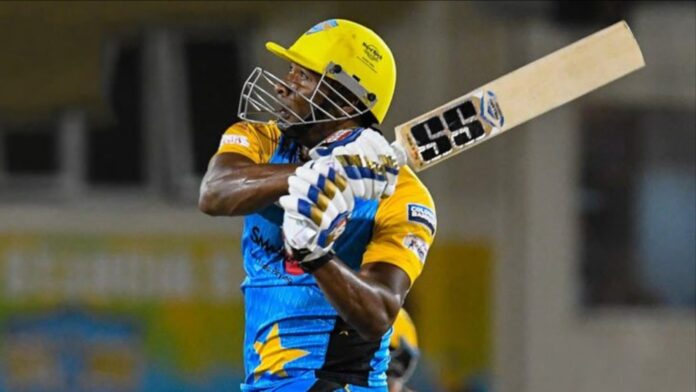Kieron Pollard, a prominent figure in the cricket world and the captain of Trinbago Knight Riders (TKR), has strongly criticized the Caribbean Premier League’s (CPL) new red-card penalty for slow over rates. The new rule, which resulted in TKR being sanctioned during a match against St Kitts and Nevis Patriots, has raised concerns about its impact on the game and the players’ hard work.
During a recent match between Trinbago Knight Riders, St Kitts, and Nevis Patriots, TKR found themselves behind the required over rate for three consecutive overs. As a result, veteran off-spinner Sunil Narine had to leave the field, leaving TKR with only ten players during the final over of the Patriots’ innings. This situation allowed Patriots’ skipper Sherfane Rutherford to score 18 crucial runs in the final over, propelling his team to a total of 178 for five.
Kieron Pollard, expressing his dissatisfaction with the new rule, described it as “ridiculous.” He voiced his concerns about the rule’s impact on the game and the players’ efforts throughout the innings. According to Pollard, the rule change cost his team around 25 to 30 runs and undermined the players’ hard work. He emphasized that the rule’s implementation can give away unnecessary runs and affect player statistics.
“Obviously, the new rules and the new innovation that have come about cost us about 25 or 30 runs in the end and to be honest, I think it’s going to take away the hard work the guys would’ve done throughout the innings. One minute down and you have guys coming in and then in the end, three guys are out [of the circle], there’s a guy off the field I think we’re just giving away runs for stats,” Pollard fumed after TKR pulled off a convincing six-wicket win at Warner Park.
The CPL’s new red-card penalty for slow over rates is designed to address teams falling behind the required over rate. Under this rule, if a fielding team is lagging behind the required over rate at the start of the 18th over, one additional player must enter the fielding circle. This results in having one less fielder positioned in the deep. If the over rate remains inadequate at the beginning of the penultimate over, another player must be brought into the circle. If the over rate is still not met at the start of the final over, the umpires issue a red card, and the captain must select a player to leave the field.
Pollard expressed his concern that the new rule penalizes teams for slight delays in completing overs. He mentioned that players are now being penalized for small increments of time, such as 30 or 45 seconds, which, in his view, is unwarranted in a competitive tournament like the CPL. He criticized the rule’s impact on the overall dynamics of the game and its potential to determine match outcomes based on technicalities rather than actual performance.
“We just have to continue to play cricket as we know how to play, and if that (new rule) is going to determine matches and that’s what they want to see, well then we just have to go [on]. “We’re like the pawns in the whole environment here, so we’re just going to do what we’re told. We’re going to try to play cricket to the best of our ability and as fast as we can. But I think being penalized for 30 seconds and 45 seconds and things like that in a tournament like this, I think, is ridiculous,” Pollard continued.
“One minor injury, you will play IPL but not for India”: Kapil Dev’s Scathing Attack At Indian Star Player
CPL organizers established specific guidelines for over rates, setting time limits for completing certain overs. The fielding side is required to complete the 17th over within 72 minutes and 15 seconds, the 18th within 76 minutes and 30 seconds, and the penultimate over within 80 minutes and 45 seconds. Organizers noted that certain dispensations would be granted for injuries, Decision Review System (DRS) referrals, and time-wasting by the batting side where applicable.
The introduction of the red-card penalty for slow over rates in the CPL has sparked controversy and criticism from players like Kieron Pollard. While the intention behind the rule may be to ensure timely progress in matches, players and experts are debating its effectiveness and impact on the game. The ongoing dialogue between players, organizers, and cricket enthusiasts highlights the complex nature of balancing the pace of play with maintaining the integrity of the sport.






















